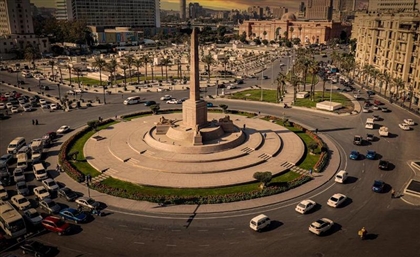Suicide: Egypt's Silent Killer
Following the widely circulated image of the man who committed suicide by hanging himself from a billboard, Conor Sheils delves into the tragic suicide phenomenon in Egypt - a topic that remains shrouded in stigma and lacking the correct awareness…

Last week an image of a man who committed suicide by hanging himself from a billboard on the Cairo-Ismalia road was widely circulated in the Egyptian media and on social networking sites. During the media circus that ensued, many outlets told the story of Farag Rizk, a desperate father who committed suicide after he was refused a raise, leaving him struggling to pay his children's school fees. In reality, had the picture itself not been so shocking, many would've scarcely bat an eyelid at this heartbreaking example of human tragedy.
In Egypt, mental illness is a topic shrouded in stigma and still spoken about in hushed tones in many segments of society. Meanwhile, suicide is an issue rarely spoken about and the act itself is still seen as shameful or a sin among Egypt's largely conservative society. A 2010 government report published in state-owned newspaper Al-Ahram indicated that there were a total of 1,160 suicides reported in the year 2005, followed by 2,355 in 2006, with the number rising to 3,700 in 2007.
In 2008 approximately 4,000 Egyptians died by their own hands, while a shocking 50,000 attempted suicides were reported in the same year. In 2009 an estimated 5,000 Egyptians killed themselves - and an additional 104,000 suicide attempts were reported. In the days following Farag Rizk's death, several high profile suicides have made headlines.
Associate Professor of Psychology at the AUC Mona Amer believes a lack of adequate services are at the root of Egypt's spiralling suicide rates. "If there were more adequate services available, it would definitely go a long way," she tells CairoScene. "There is also an issue with preventive services available, it is not a just matter of of offering services once a person has already got a certain stage. We need to look out for the signs beforehand."
"There is a distinct lack of services for the middle class in this country. In Egypt we see mental health services available for lower income brackets, through government services, while the higher end of the market is covered by expensive private clinics. However this leaves many middle income earners with nowhere to turn in their hour of need. The services simply don't exist here. In many cases people are simply not aware of the services on offer - they don't know where to go," Amer adds.
No figures have been released since the January 25th revolution in 2011, leading many to worry that instability and financial worries may have caused suicide rates to spike even further over the past number of years. Egypt’s poverty rate rose to 26.3% in 2013 compared to 16.7% in 2000 according to government statistics. The report also claimed that 67% of those living under the poverty line live in families with more than 10 members.
Meanwhile, Dr. Amer is scathing in her criticism of the government's response to the mental health crisis. "There are not enough resources channeled into mental health in this country. The budget allocated is tiny; far from adequate. There is a huge disparity between the number of people who need services and the amount of services available."
But services and funding can only go so far in a society where mental illness is often swept under the rug or hushed up until it is too late.
"There is definitely still a stigma attached to mental illness in Egypt," Amer says. "Government organisations and bodies have tried to raise awareness of the issues surrounding mental illness in Egypt and they have had some success. But overall there is still a stigma attached to mental illness and certainly to the issue of suicide here."It is because of this shame that suicide remains underreported on death certificates as families struggle to deal with the cruel reality of losing a loved one by their own doing."In a lot of cases, suicides are often attributed to other causes of death. Many families still struggle to comprehend how their loved ones could commit suicide," Amer continues.
Currently, Egypt hosts no active helplines, such as The Samaritans in the UK, for those considering ending their lives. UK-based charity 'Befrienders' previously operated such a service but the organisation has since left Egypt for unknown reasons. The void left by such services has severely limited the options for those in need of dire help.
When contacted by CairoScene earlier this week, a spokesman at 'Befrienders' said: "Befrienders Worldwide has simply lost contact with the Cairo Samaritan-modelled telephone helpline that was once affiliated with us."
Meanwhile, some practitioners are using other methods to combat depression and mental illness. Dr. Adel Badr, a Cairo-based practitioner of alternative and Chinese medicine claims that certain non-conventional treatments are a possible alternative approach to solving mental health issues. "Accupuncture appears to have an effect on patients. The process often affects the chemicals which control mood in the human brain, such as dopamine," he tells CairoScene.
However, studies have failed to provide conclusive evidence to support the claim that alternative medicine can provide a long-term solution for depression or other mental illnesses. Nonetheless, speaking on his own views regarding mental illness in Egyptian society, Dr. Badr believes more could be done to raise awareness here. "Depression and mental illness is a taboo in Egyptian society which often leads many people suffering from the illness to avoid seeking help. Our society needs more awareness of the issues affecting those who are depressed, and we must raise aware of the problem before it is too late."
- Previous Article Egypt Selects Factory Girl for the Oscars
- Next Article Nomades Land
Trending This Week
-
Apr 10, 2024
























